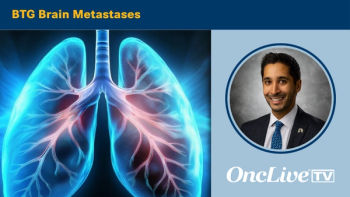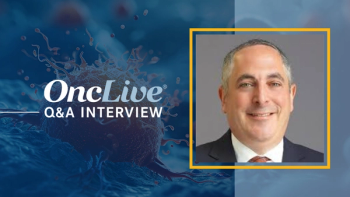
Glioblastoma: Guideline Recommendations for Treatment
Transcript:Maciej Mrugala, MD, PhD, MPH: The NCCN guidelines are very comprehensive. They are designed for specific disease processes. There is a guideline for several of the CNS malignancies, and each tumor is discussed separately. For glioblastoma specifically, the new changes include the new WHO classification of tumors with emphasis on obtaining molecular testing in patients who are being diagnosed with glioblastoma. Again, they emphasize resection for patients who are good candidates and—we discussed this before—patients who have tumors in noneloquent areas and do not have other comorbidities that would preclude surgical intervention. So, that’s definitely emphasized in the guidelines.
In terms of adjuvant treatment, the major change includes inclusion of the tumor treating fields in treatment of glioblastoma in newly diagnosed patients. This is based on recently published data indicating that the addition of tumor treating fields to temozolomide and radiation in patients with newly diagnosed glioblastoma can result in a survival benefit. I think this was probably the major change in the guidelines this year as opposed to prior editions, where this was not present since we didn’t have the data.
I think that the major change in this year’s edition of the NCCN guidelines was the inclusion of the tumor treating fields in combination with temozolomide and radiation in newly diagnosed patients with glioblastoma. We now have the data to support the fact that addition of this modality extends survival. It was not the case in prior editions of NCCN guidelines because the data did not exist then. The clinical trial was still ongoing at that time, but has now been completed. The final data will be available soon. As a matter of fact, they will be presented at the Society of Neuro-Oncology Meeting in November of 2016.
Daniela Bota, MD: The guidelines for recurrent disease, if we look at the NCCN guidelines, are a little bit more difficult than the guidelines for newly diagnosed disease. That is unfortunate because we do not have a lot of treatments available. The 2 FDA-approved treatments for recurrent disease are bevacizumab and the use of Optune as a single agent. However, we have to remember that we also have older drugs that were used for the treatment of glioblastoma in the past and have all their approvals, such as CeeNU (lomustine). So, if it is to follow the guidelines that we have, right now we have the choice of Avastin (bevacizumab) or the choice of Optune as single therapy with the modality, or the choice of going back to the older alkylating drugs that we have used in the past.
Transcript Edited for Clarity






































